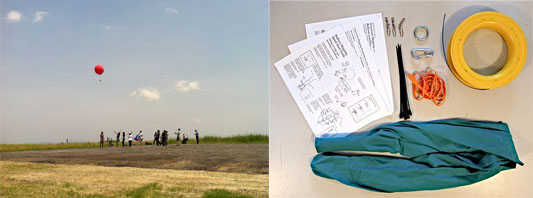The Philanthropic Future of Science?
The NY Times reported that American science is becoming increasingly funded by philanthropic donors, for better or for worse. Supporters of philanthropy cite accomplishments such as medical advances and meeting scientific funding needs in the face of government budget cuts. Others, such as the authors of a Nature editorial, note that philanthropic funding is skewed towards “fashionable” fields such as health, space, and the environment, and is disproportionately allocated to well-known universities.
Signaling a larger shift towards more applied research topics, philanthropists and the government alike are putting less money into basic science. Basic science, the mystery-solving that is fundamental to many scientific disciplines but lacks direct real world applications, may be underfunded because the benefits are often only realized in hindsight. In 2009, the government budget for basic science was $40 billion compared to $30 billion today. Similarly, 3.6% of philanthropic donations went to basic research in 1999, but the donors allocated only 2.9% in 2006. While the funding may be going to more relevant topics, the Nature editorial warns that cutting basic research may undermine long-term efforts and the foundational research needed for future advances.
As science is becoming more privatized, a separate movement has been taking shape to democratize science. While citizen science groups span the board from the government funded (e.g. Project BudBurst, a Chicago-based initiative that studies climate change by looking at the timing of seasonal changes in plants) to nonprofits (e.g. the Public Lab, an open-source platform that focuses on DIY techniques for research), both types seek volunteers to contribute to the collection of scientific data and to shape research questions. This volunteer effort allows scientists to collect large data sets that might otherwise be prohibitively expensive or difficult and to involve the public in the research process.
The research questions addressed by citizen scientists are somewhat different from those that philanthropists or the government pursue; citizen-driven research tends to employ non-traditional tools and grassroots research techniques, which inherently blend disciplines. It is unlikely that citizen scientists are executing the type of large-capital projects now funded by philanthropists such as space exploration or large particle reactors. And because the research questions in citizen science are often, though not always, generated by the citizens, these projects will inherently be informed by social conditions.

Left: Citizen Scientists use aerial balloon photography at Freshkills Park
Right: Tools used for aerial balloon photography (photo courtesy of Public Lab)
At a site like Freshkills Park, with a diverse set of ecological conditions over 2,200 acres, science research can be conducted at multiple levels and in partnership with different constituencies. In addition to institution-run projects, a new citizen science project is beginning to take shape under the direction of Nicholas Johnson, a member of the Public Lab and a recent graduate from NYU’s Interactive Telecommunications Program. Find out more about this project in our upcoming Fresh Perspectives newsletter.




